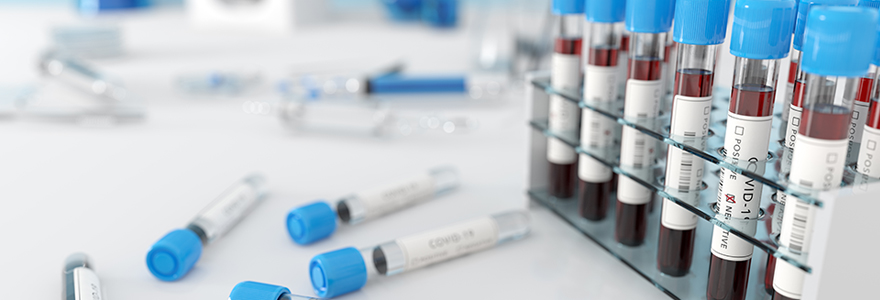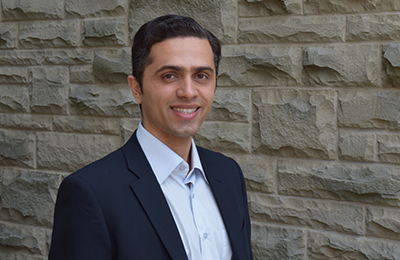Commentary: Investment in biomedical research will protect Canadians from COVID-19 in the months and years to come

By Saman Maleki, PhD
After two years of avoiding COVID-19 infection, I ended up in the emergency department during the peak of the Omicron wave.
As an immunologist who studies the interaction between the immune system and cancer, as well as COVID-19 immunology, it was a surreal experience. It also highlighted for me how far we have come as a global community since March 2020 and emphasized the alarming challenges we still face.
We are now two years into this pandemic, and it is no longer good enough to say vaccines prevent death when many people are suffering from mild to moderate disease and facing the consequences of longer-term symptoms. Current vaccines have saved lives and played an essential role in limiting the human cost of infection from SARS-CoV-2, but the virus is now much more effective at infecting us – less virulent, but more transmissible.
 At the same time, a lack of widespread PCR testing in the community has made it more difficult to break the chain of transmission, and rapid antigen tests are proving to be less sensitive to newer variants.
At the same time, a lack of widespread PCR testing in the community has made it more difficult to break the chain of transmission, and rapid antigen tests are proving to be less sensitive to newer variants.
COVID-19 is not going anywhere and endemicity – meaning the amount of virus present in a region is stable, without rising and falling waves of infection – is the only way out of this pandemic. To get there, we need better testing, vaccines and anti-viral therapies.
As a relatively young individual who is vaccinated and boosted against the SARS-CoV-2 virus with no underlying conditions, I was not afraid of dying from COVID-19. The statistics were on my side.
But as an immunologist, I know far too well that this disease has an x-factor that can cause severe illness in people who are relatively healthy – for reasons we still do not fully understand. COVID-19 can also cause ‘long-COVID’, lingering symptoms of the disease in people after the acute phase of the infection has resolved.
My symptoms started off mild, with a bit of fatigue and headaches. I continued working from home while looking after my wife, who had symptomatic COVID-19, and my five-year-old son, who was deprived of hugs from his parents and was not happy about being alone in his room for most of the day.
As my wife’s symptoms improved, mine worsened. There was not a single point in my body that was not affected or in pain. My blood pressure was fluctuating, and I felt a tremendous fog come over me. I was severely dehydrated, most likely due to night sweats, and I was experiencing severe vertigo and light-headedness.
At the emergency department, the doctor told me that I was lymphopenic (low levels of white blood cells) and anemic (low levels of red blood cells and hemoglobin), which may explain the ungodly fatigue I was experiencing.
Now over a month later, after the acute phase of the infection, I am still dealing with lingering symptoms, including non-stop headaches.
This is a challenging time, but I know I am not the only person living with longer-term symptoms. Unfortunately, I am one of many who will be infected and re-infected.
As the virus mutates and adapts, there will be many more cases in the months and years to come. This means more people will be infected with SARS-CoV-2 for the first, second and even third time, and we can expect milder to moderate disease.
We need reliable and widespread testing to help prevent the spread of the virus. We need variant-specific vaccines to protect us against mild and moderate disease. And we need more accessible anti-viral medications to treat the infection.
As a scientific community, we must do better to protect our health care system and reduce human suffering. This is where investment in biomedical research and biotechnology comes into play. As the pandemic exposed, Canada has significantly underinvested in the research infrastructure necessary to develop life-saving vaccines and therapeutics.
More Tri-Council funding for biomedical research and better government policies to attract experts and establish a successful biotechnology industry in Canada are ways we can protect Canadians from the unnecessary suffering many of us have experienced and will continue to experience as a result of the COVID-19 pandemic.
Saman Maleki, PhD'14, is an Assistant Professor in the Departments of Medical Biophysics, Oncology, and Pathology and Laboratory Medicine at the Schulich School of Medicine & Dentistry, Western University.








